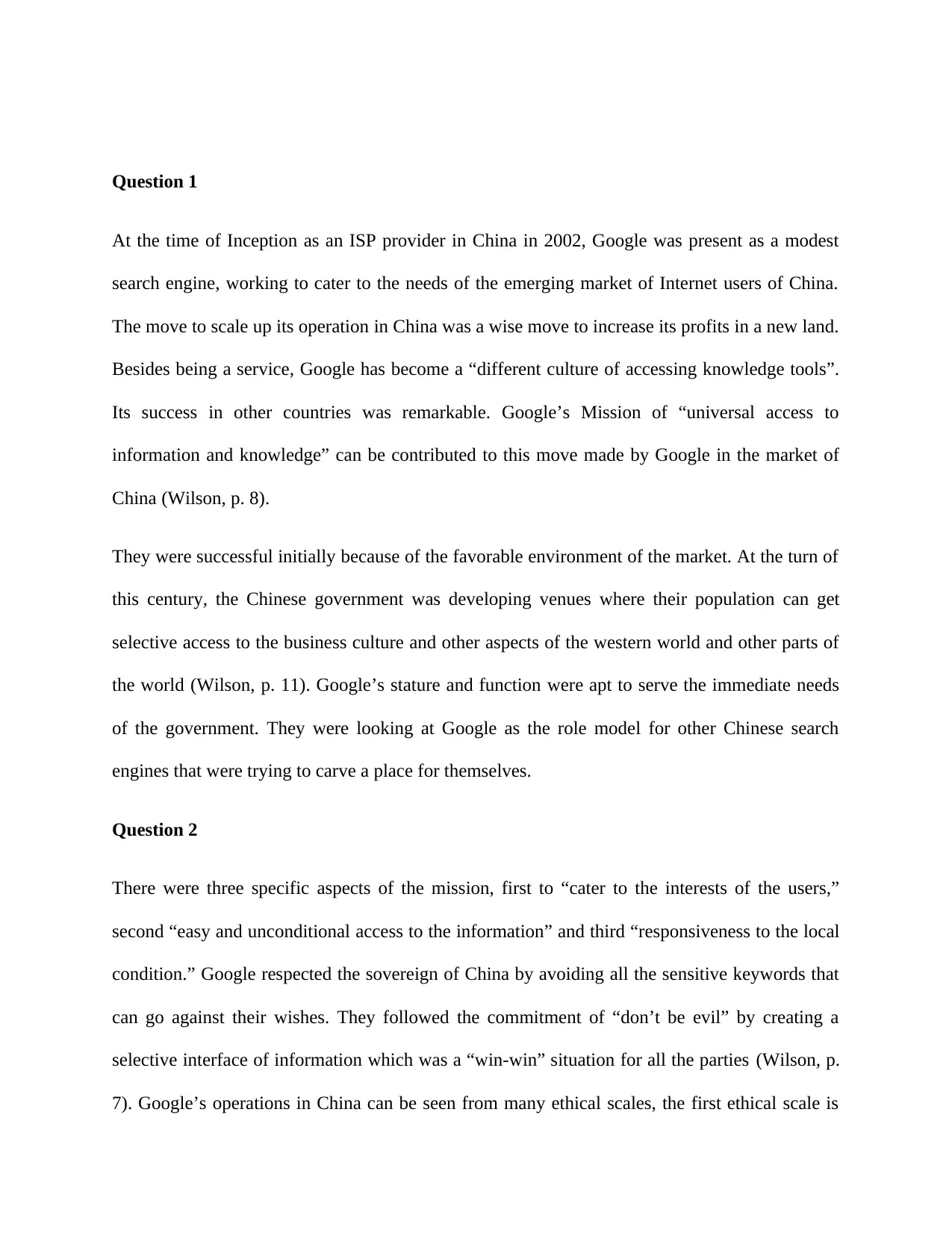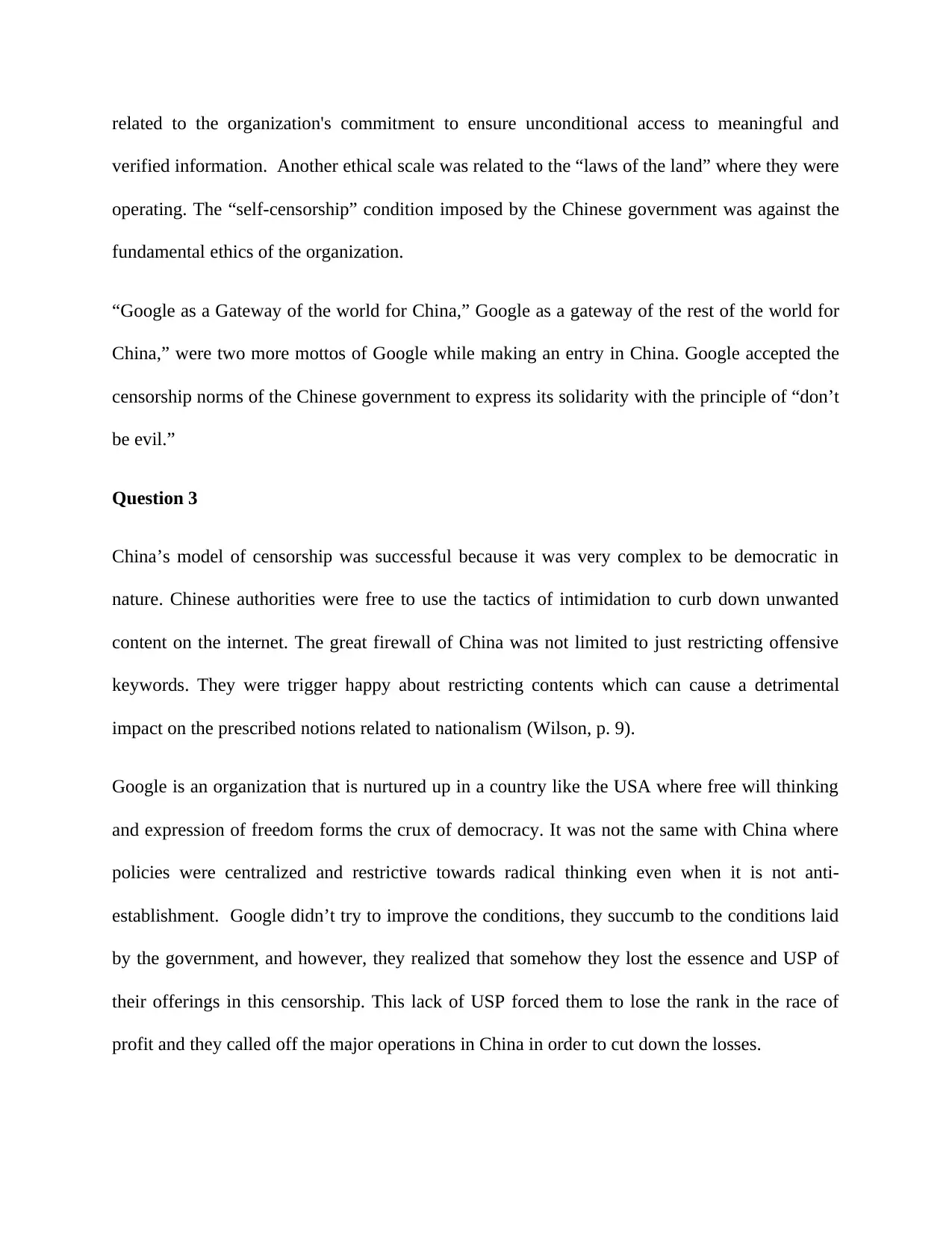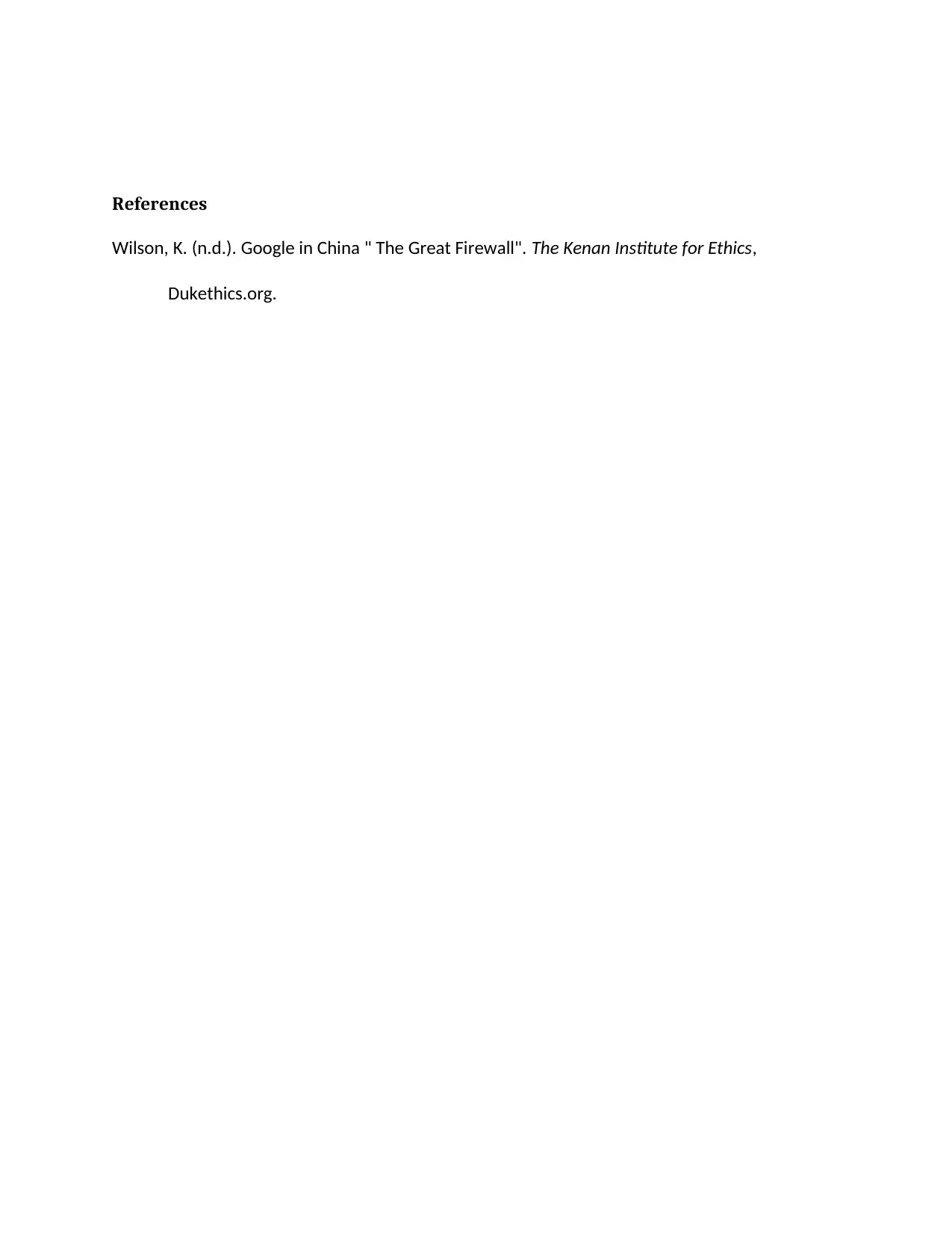Google in China: Ethical Dilemmas & Business Strategy - A Case Study
VerifiedAdded on 2022/08/12
|4
|680
|15
Case Study
AI Summary
This case study examines Google's entry into China in 2006 and the ethical challenges it faced due to the country's censorship policies. Google's mission of providing universal access to information clashed with the Chinese government's requirement for self-censorship, leading to the launch of Google.cn, a censored version of its search engine. The case explores the ethical implications of Google's decision to comply with Chinese censorship, weighing the organization's commitment to free information against the laws and conditions of the operating environment. China's complex censorship model and Google's initial success, followed by its eventual struggle to maintain its unique selling proposition (USP) and profitability, are analyzed. Ultimately, Google's decision to withdraw major operations from China highlights the difficulties of balancing ethical principles with business objectives in a restrictive political landscape. Desklib provides access to similar case studies and solved assignments for students.
1 out of 4








![[object Object]](/_next/static/media/star-bottom.7253800d.svg)